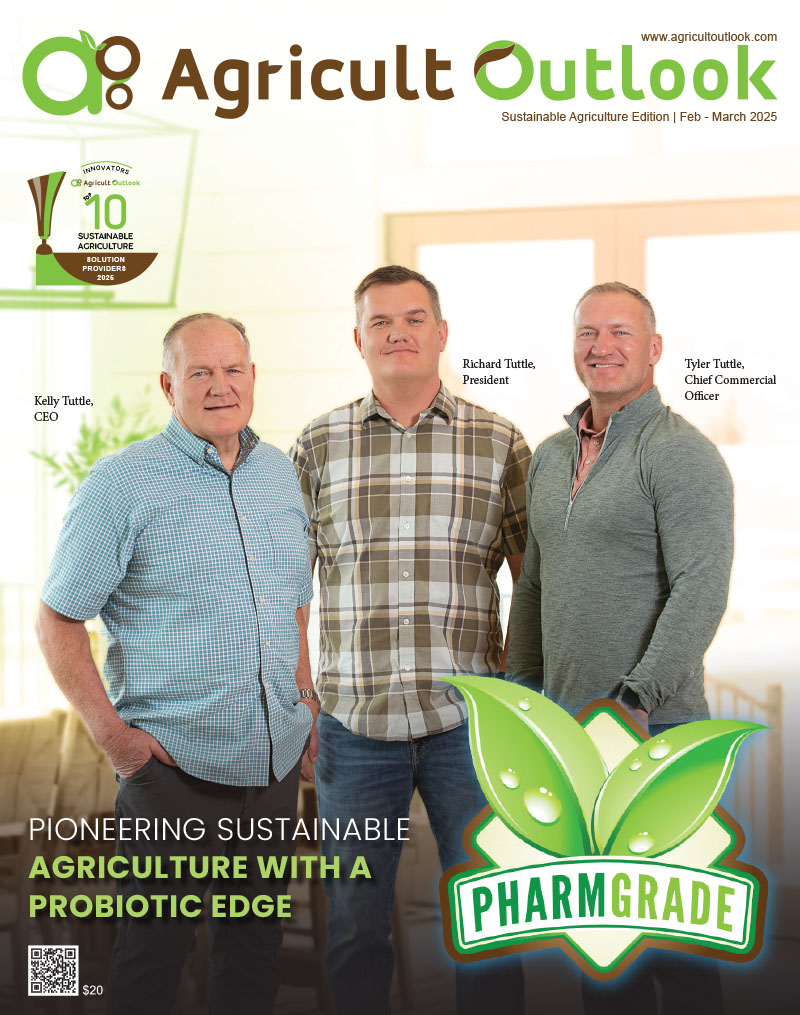AutoStore has officially announced the launch of its Opollo Farm, which happens to be a fully automated vertical farming system built by AutoStore and OnePointOne.
Under the given farm, robots are expected to move crops through a precision-controlled environment, adjusting their position to deliver the perfect balance of water and nutrients. This makes it possible to deliver harvest-ready greens in just 15 days, about half the time of traditional farming.
More on the same would reveal how plants are seeded automatically. Once that bit is done, they are immediately transferred to the grid for germination. In fact, throughout their life, the plants consistently move locations to receive optimal environmental conditions at every stage.
“Traditional farming consumes vast amounts of water and land—resources that are becoming scarce,” said Sam Bertram, CEO of OnePointOne. “With AutoStore’s modular robotics and our plant-production technology, we can grow food almost anywhere using a fraction of those resources. This collaboration helps overcome the cost and scalability challenges of vertical farming, finally making locally grown produce—the number one priority for U.S. consumers—possible even in urban areas.”
Talk about the whole value proposition on a slightly deeper level, we begin from the fact that, unlike traditional farms, the Opollo Farm operates entirely indoors so to provide complete control over the plants’ environment. You see, the farm’s compact, automated, and modular design further allows for it to be placed close to urban centers or co-located with distribution hubs. This treads up a long distance to maximize floor space and minimize food miles.
Next up, we must dig into how this Opollo Farm deploys a cube storage system which ensures that robots can move thriving plants through the grid and adjust plant positions in real time.
Another detail worth a mention is rooted in the system’s tendency to exhaust upto 95% less water than traditional farming.
“Opollo Farm shows what’s possible when proven automation meets global challenges like food supply resilience and sustainability,” said Parth Joshi, Chief Product Officer at AutoStore. “Our work with OnePointOne highlights the versatility of AutoStore, moving and storing goods for everyone, everywhere, across diverse industries and use cases. From order fulfillment for leading brands to scaling urban farming, we’re enabling smarter, more resilient solutions.”
Among other things, we ought to mention how the all-new Opollo Farm actually runs on a hydroponic growing system. This translates to how plants are grown in bins within a closed-loop system where water is recirculated, cutting down on water consumption by a significant margin.
Apart from it, we must also mention its commitment to high-density cultivation. Such a setup paves the way for farms to get assembled inside existing distribution centers and eliminate the 2,000 mile average journey from the farm to distribution center.
Complementing this would be the farm’s scalable architecture. Hence, no matter whether operating at small or large scale, Opollo Farm delivers at your disposal a consistent performance. It can also be expanded seamlessly to meet the growing demand.
We briefly touched upon the farm’s focus on putting-together a localized supply chain, but what we haven’t yet touched upon is that this close proximity to urban centers allows for shorter supply chains and reduced transportation emissions, thus leading to a more sustainable affair.
“At Whole Foods Market, we’re constantly exploring new ways to bring fresh, sustainable food to our customers,” said Chris Petroulakis, Category Merchant for Produce at Whole Foods Market. “Opollo Farm is a perfect example of how advanced technology can revolutionize local agriculture, helping to deliver high-quality, locally grown produce right to our stores faster and fresher than ever before.”







